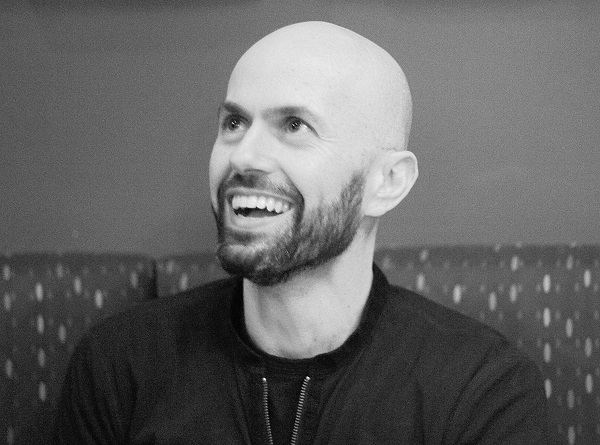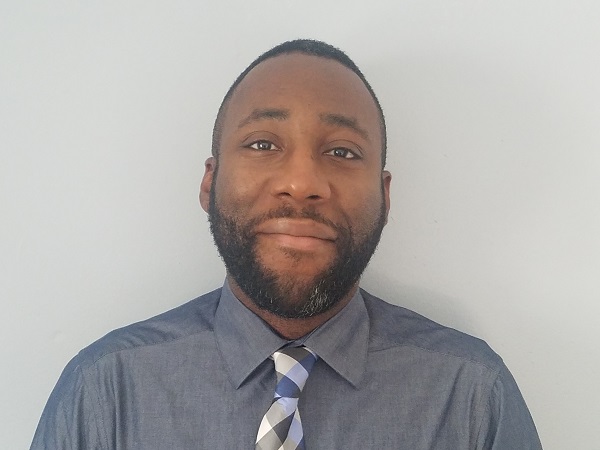Inclusive and Welcoming Mental Health Support
August 6, 2017
The Human Rights Campaign Foundation started publishing the Healthcare Equality Index (HEI) more than ten years ago as a tool and resource to help healthcare facilities become more inclusive for LGBTQ+ patients and their families. Over the years, many hospitals and facilities have earned high HEI scores for their commitment to and demonstration of policies for non-discrimination and equal visitation raising the bar and also helping LGBTQ+ patients find facilities that provide equitable care. There is much more to be done not only to provide unbiased healthcare services for individuals in the LGBTQ+ communities, but to also understand their specific health needs and that includes mental health.
The number of Americans who experience mental illness in a given year is staggering. The National Alliance on Mental Illness (NAMI) reports that that number is around 43.8 million adults, nearly 60 percent of whom, for a variety of reasons, didn’t receive any mental health services. When compared to the general population, LGBT individuals are at a much higher risk—three times more likely—to experience mental health conditions. NAMI also cites that suicide is one of the leading causes of death of LGBTQ+ people aged ten to 24; LGBT youth (compared to straight) are four times more likely to attempt suicide, experience suicidal thoughts, and engage in self-harm; 38 to 65 percent of transgender individuals experience suicidal ideation; and an estimated 20 to 30 percent of LGBT individuals abuse substances (9% of the general population) and 25 percent of LGBT individuals abuse alcohol (5 to 10 percent of the general population). Mental and behavioral health services for those who identify with the LGBTQ+ community are in great demand, but treatment may not be sought. When it comes to mental and behavioral health issues, they are still largely misunderstood and stigmatized making it less likely to be accessed. And for those individuals who identify as LGBTQ+, they face societal and governmental hostility, prejudice and discrimination on top of the intolerance anyone living with depression, anxiety and other conditions feels in this country.
 Christian Jordal, PhD, director of the Master of Family Therapy program and assistant clinical professor and Anthony Pennant, LMFT, adjunct professor, are doing work within the College of Nursing and Health Professions (CNHP), Drexel Clinical Practices, including the Parkway Health and Wellness clinic, and Drexel University Individual, Couple, and Family Therapy Services clinic and in their own private practices that hopefully will move the needle on these statistics. Both Jordal and Pennant working at specialize in working with LGBT individuals, couples and families. Through their roles at CNHP, they are training the next generation of clinicians in a way that aligns with the historic mission of the department of Behavioral Health Counseling and Couple and Family Therapy, which includes cultural competency, and social justice service. Despite the statistically low number of people currently seeking support, CNHP students recognize and want to address the growing need for mental health services for a myriad of conditions. CNHP’s bachelor’s degree in behavioral health counseling prepares students to start their careers much faster. They’ve had advanced hands-on training and real-world learning experiences letting them walk out of the door as competent addictions treatment and mental health professionals. The master’s degree program in couple and family therapy (MFT) prepares students to build a solid foundation for fulfilling careers within highly diverse communities especially those that are systemically disparaged and unjustly treated.
Christian Jordal, PhD, director of the Master of Family Therapy program and assistant clinical professor and Anthony Pennant, LMFT, adjunct professor, are doing work within the College of Nursing and Health Professions (CNHP), Drexel Clinical Practices, including the Parkway Health and Wellness clinic, and Drexel University Individual, Couple, and Family Therapy Services clinic and in their own private practices that hopefully will move the needle on these statistics. Both Jordal and Pennant working at specialize in working with LGBT individuals, couples and families. Through their roles at CNHP, they are training the next generation of clinicians in a way that aligns with the historic mission of the department of Behavioral Health Counseling and Couple and Family Therapy, which includes cultural competency, and social justice service. Despite the statistically low number of people currently seeking support, CNHP students recognize and want to address the growing need for mental health services for a myriad of conditions. CNHP’s bachelor’s degree in behavioral health counseling prepares students to start their careers much faster. They’ve had advanced hands-on training and real-world learning experiences letting them walk out of the door as competent addictions treatment and mental health professionals. The master’s degree program in couple and family therapy (MFT) prepares students to build a solid foundation for fulfilling careers within highly diverse communities especially those that are systemically disparaged and unjustly treated.
Jordal and Pennant, both clinical supervisors, are helping their students become practitioners who have the skills and understanding to work with clients regardless of their race, ethnicity, identity, beliefs or values, because they are integrating Person of the Therapist (POTT), cultural competency and social justice, a cornerstone of the MFT program. “We are helping students develop a knowledge of the communities, the people that they are working with and serving those communities,” Jordal stated. “The majority of programs out there, the way in which they think about training their students, is how to be culturally aware and sensitive. We are trying to move beyond awareness to competency,” he added. Pennant thinks that cultural competency dictates that one must have a certain level of curiosity about differences. “When you look at someone, you say ‘Their experience is not my experience.’ Let me figure out how it feels to have a particular experience when it is dissimilar,” reasoned Pennant. When a student is able to think in this way, Pennant contended that his or her mindset is open to change. In Jordal’s words, he believes that students need to develop immersive knowledge about the people with whom one works. He gave an example: “If I’m a grad student who lived in central PA or rural West Virginia or Wyoming, what’s my experience working with or knowing LGBTQ persons and people of color.” The less of a foundation a student has, the more knowledge they must cultivate. “The therapist should be aware of the burden they place on clients to educate them in their identity,” Jordal commented.
Pennant sees a variety of people for a range of reasons, specifically couples.

Issues around their relationship and what it means to be a couple, how to set up their families and what roles each will play find their way into discussion. It also could be a heterosexual couple navigating their partnership when one feels safe enough and begins to self-express as gender fluid. And if a partner comes out as transgender, Pennant will provide time and space to negotiate the changing relationship. “There’s such a richness in regards to what’s out there and sometimes it can be confusing,” Pennant suggested. “When people don’t fit in this bilateral world, it’s important to get people to have conversations as to understand that just because normal seems normal to you doesn’t mean that that normal is normal for everyone,” he furthered. He espoused that it is most vital to let people, especially LGBTQ+ individuals, know that they should not be ashamed to talk about what is important to them.
Jordal, who works with clients in monogamous, open and polyamorous relationships including those in the LGBT and mixed-orientation communities, looks beyond the presenting issues when people come to see him. “There are therapists out there who are working with LGBT persons of color who may not be having conversations about the intersections of race, culture, gender, and sexual identity because they presume a sameness in the LGBT persons experience, or their training says it’s not relevant to depression, anxiety or issues in their families,” he pointed out. “But I would argue that as a family therapist, as a person who is trained to think about systems, it’s not just about being depressed, it’s about ‘this is a person of color, who may also be transgender, or same-sex attracted, who is navigating the society that marginalized and oppresses him and how do those larger contexts manifest in his feelings of depression?’,” Jordal continued. He concluded that it’s not just due to an organic cause, but also to the fact that he’s living in a society that’s potentially life threatening. “The way our program works is that we train our students to get into those conversations.” Yes, exchanges about differences are crucial in helping one connect with his or her client. But therapists should also look within themselves.
POTT—a model created by CNHP clinical professor
Harry Aponte*—is part of the MFT mission. “It’s about recognizing that all of us, as clinicians, are wounded healers with our own issues, what Dr. Harry Aponte calls ‘signature themes,’” Jordal remarked. “Harry’s model is about understanding that woundedness and using that as a way to connect with your client. It’s a deepening the understanding of oneself to more deeply understand the client,” he continued. Jordal gave an illustration. “If I am, for example, a gay male working with a lesbian female, how are my experiences of marginalization and oppression something I can use to better understand those of my client.”
Jordal made a point in saying that both the undergraduate program in behavioral health counseling and the MFT program are cutting edge due to the fact that students have the skill set to go out and be on the front lines working with clients immediately. The MFT program takes the education further in that these students are being trained to be leaders in the field. “Most programs in my discipline do not train students around issues of social justice,” Jordal shared. “They don’t think about the Person of the Therapist so our students have a level of preparation that really serves them well and sets them apart.”
;
How far have we come in healthcare equality for LGBTQ persons? In the 1950s and 1960s, homosexuality and bisexuality were considered mental illnesses and gay men and women were forced into terrible treatments. Attitudes towards the LGBTQ+ community have changed over the last 35 years following the removal of homosexuality from the Diagnostic and Statistical Manual of Mental Disorders. However, there are still many instances of unequal access and quality of care. Disparate treatment will dissipate as the helping professions increase their knowledge through better training, higher levels of cultural competency and commitment to social justice. Both Jordal and Pennant see access to treatment growing as well. “Increased funding for research supporting mental health treatments leads to an increase in insurance coverage. And when people can afford treatment, they will seek it out,” Jordal says. And CNHP educated individuals will be ready to work with anyone, especially those in the LGBTQ+ communities because of their knowledge about the specific issues faced by LGBTQ individuals with mental health conditions.
*CNHP is hosting the International Conference onthe Person of the Therapist on April 26, 2018. Harry Aponte is one of the the renown speakers who will be presenting that day. Information and registration for the event is available on the CNHP website.